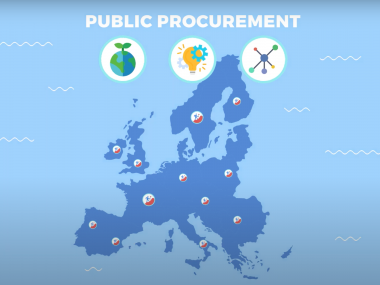Latest report on the impacts of Covid-19 on public procurement practices in Europe
Edited on
27 August 2021In what ways has Covid-19 impacted European cities in their processes of public procurement ? To what extent has their approach in achieving social, economic and environmental goals changed as a result of the pandemic ? What role has this played in driving economic recovery?

This latest report released by various partners from the Urban Agenda for EU Partnership on Innovative and Responsible Public Procurement with contributions from URBACT's Expert, Matthew Baqueriza Jackson, outlines a set of case studies analysing the impacts on Covid-19 on public procurement practices in European cities. These case studies explore how cities can mainly capitalise on new trends in order to make the use of public procurement greener, more sustainable to serve and reach a wider community across Europe.
This research is primarily seeking to determine the underlying results of Covid-19 on a total of 14 European cities and their approach to public procurement. It serves as a basis for all EU member states and European cities in how to respond to the pandemic from a procurement lens. Hence, the report is divided in three main chapters including social and health considerations, environmental effects and procedural changes in public procurement policies as a result of Covid-19.
List of cities that contributed to the research by providing input on occuring changes and existing challenges in public procurement since the start of the pandemic:
- Bistrița (Romania)
- Kavala (Greece)
- Koszalin (Poland)
- Pamplona (Spain)
- Schaerbeek (Belgium)
- Vila Nova de Famalicão (Portugal)
- Haarlem (Netherlands)
- Vantaa (Finland)
- Gabrovo (Bulgaria)
- Munich (Germany)
- Turin (Italy)
- Larvik (Norway)
- Tallin (Estonia)
- Palermo (Italy)
To read the article published on Futurium and download the full report, click here.
 Submitted by Nouhaila Bouhout on
Submitted by Nouhaila Bouhout on




